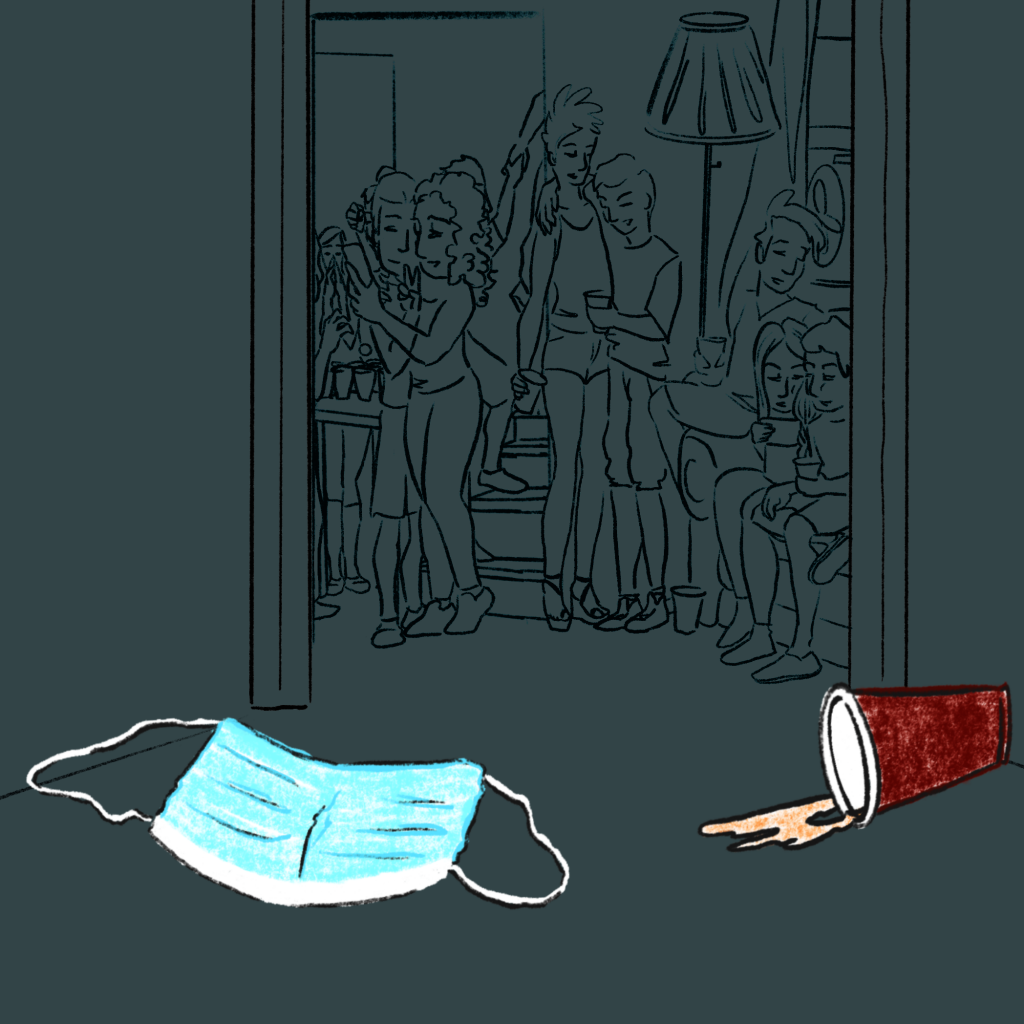It’s been less than a week back at Binghamton University and students are watching as colleges around them are being shut down as a result of the coronavirus pandemic. Just this weekend it was announced that SUNY Oneonta will be closed for the next two weeks, with all classes moving online. The university had a total of 105 cases, which was over the limit Gov. Andrew Cuomo had set in order for colleges in New York state to remain open. While SUNY Oneonta did not require mandatory testing for on-campus students, they increased their tests after reports of student parties.
With regulations slowly lifting on outdoor and indoor dining, the bar scene in Binghamton has reemerged. State Street has appeared as if nothing was wrong over the weekend, save a few masked partygoers. For many, the question of whether or not BU will be next to shut down is on the forefront.
So far, BU has mandated testing for all on campus students, with only 28 positive cases so far. While personal protective equipment PPE was made available to off-campus students, no word on the availability or nature of testing requirements has been released. Considering that’s where over half of the student population resides and where the majority of parties and gatherings take place, it feels like a large oversight on the part of the administration. Students were, however, sent an email speaking about BU’s collaboration with the city of Binghamton to create a “Social Host” ordinance that punishes those found hosting parties where alcohol is present around minors. Penalties for violating the ordinance include paying a $1,000 fine or serving 15 days in jail. Now, after a summer that gave way to one of the largest movements against police brutality in American history, it’s not likely that many people really want to call the police on their neighbors for throwing a party. More policing, and potentially putting students at risk in prisons where COVID-19 can spread rapidly isn’t a stellar answer, nor is fining them. Simply delaying the arrival of a degree, not to be mistaken for having to pay for extra semesters, could be a potential solution. This could allow for a real consequence without potentially penalizing students in need.
BU’s college bars and restaurants play a significant part in the local economy and shutting them down could put many, including students, out of work. After several pictures of just how many students showed up to go out went viral, it became clear that despite needing to stay open in order to make money, many establishments weren’t following all the guidelines provided by the local or state government. The power that these locations hold is completely unmatched by both the University or city administration’s lack of effective incentives to curb partying. To the students who feel campus will just get shut down regardless of what happens, the chance to see friends and party is outweighed by little.
There have been little alternatives to stopping gatherings provided outside of calling the police or making students pay a fine. Resident assistants are being asked to break up on-campus parties, putting their health and safety at risk. While a “[COVID-19] noncompliance reporting” page had been set up on the BU website, it hasn’t been advertised to students who are looking for a better answer.
In reality it’s no secret that, when it comes to a global pandemic, there are no completely right answers. But simply pretending students will follow every single rule is naive. Passing off students causing problems to the local community and law enforcement is worse. The elephant in the room is that while yes, we are the “Public Ivy” and yes, we are a top-tier research university, BU still parties. We still have a strong party and drinking culture at this school, and those coming here to learn are aware of that. Rather than pretend it doesn’t, BU needs to address the issue with honesty and incentivize students to do the right thing. Rather than using jail time and fines to scare students, some of whom may already be struggling with economic inequality, BU could take other actions that still hold weight, like placing longer hold on students’ accounts or having students wait to receive a degree. If there’s one thing everyone knows to be true, you have to first admit there’s a problem before you can fix it.



